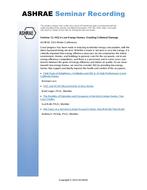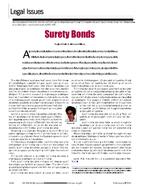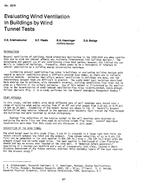Click here to purchase
Urban building energy modelling (UBEM) plays an essential role in the global climate action plans by analyzing the energy supply at urban or city scales and estimating the energy demand and the gas emission of different sectors. Moreover, policies and measures such as clean grid strategies, demand response programs, and dynamic pricing policies, that have been put in place as part of these plans rely heavily on the results of UBEM models to represent more realistic energy use and environmental impact at different temporal and spatial scales. However, the unsolved performance gap issue (i.e. discrepancy between the model predicted results and the actual performance) stands in the way of the effectiveness and the reliability of the developed models. One of the most acknowledged reasons behind such an issue is the uncertainty in modelling occupants’ behaviours (OB) in this context. Therefore, many research efforts focused on investigating different modelling approaches to improve the level of details of occupant-related features in UBEM models. However, the capability of the developed models to be integrated into the currently available UBEM tools is still questionable. This caused many practitioners and UBEM users to rely on simple fixed schedules instead of examining stochastic models with a higher level of detail when needed. To this end, this paper aims to review the currently available OB models and compare them with respect to inputs, used algorithms, their expected outputs, as well as their integration capability into the commonly used UBEM tools. The results of this investigation can be used to develop guidelines for modelling OB aspects for the different applications of urban building energy simulation, as well as identify areas of improvement in the commonly used UBEM tools.
Product Details
- Published:
- 2023
- Number of Pages:
- 8
- Units of Measure:
- Dual
- File Size:
- 1 file , 1.5 MB
- Product Code(s):
- D-AT-23-C056
- Note:
- This product is unavailable in Russia, Belarus


